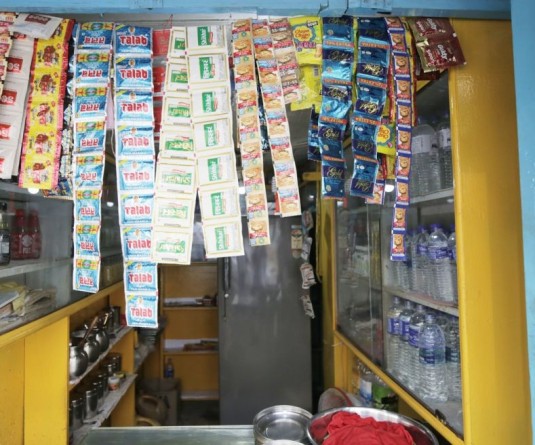Chair and Founder of YouthNet Hekani Jakhalu Kense with the YouthNet team in Kohima.
Vishü Rita Krocha
Kohima | January 31
At the start of a new journey in 2006, Hekani Jakhalu Kense dreamt of building an empire through which she is changing the lives of young people positively. “The situation was so grim; the ceasefire was still happening; at that point of time, shops in Kohima would close by 4:00-5:00, the only café was Dream Café…it was in a situation like that, that we decided to ambitiously take up, create this empire and make sure that through it young people build Nagaland.”
Sure enough, 16 years forward, YouthNet, which is possibly the highest employer of youth in the private sector in Nagaland, has impacted over 1.2 lakh population of young people across the state including several church youth groups, student unions, young people at the village, community, rural and urban level while over 200 young people have directly worked with the organisation in the past.
On the eve of YouthNet turning sixteen on February 1, 2022, Hekani Jakhalu Kense relates to The Morung Express that “I know there is still a lot to do but I am happy the way it is going.” “It's just that because of Nagaland's own political problem, many things that need to be there are not there; the ecosystem is not right”, she states.
If the political situation was perfect, she strongly feels that “with the amount of work and energy that we have put in and many other people have put in, by now Nagaland would have been number one not just in North East but in the whole country in India.” The unresolved Naga political problem, she impresses upon is precisely the reason why although they work as much as they do, the desired result is still not seen.
Otherwise, she believes the energy of Naga youths are tenfold than other people. “If you look at them, there is so much that can be achieved but again it is the unresolved political situation that has kept us back at least 20-30 years behind”, she says. Pointing out that the energy of the young people and the ecosystem are not matching, she articulates that “in terms of my visualisation, if the system was better we would have done so much better.”
However working with young people over the last 16 years in the areas of education, unemployment, entrepreneurship and livelihood, YouthNet has also seen a change in the mindset, which Hekani Jakhalu Kense says, “is a continuous process that has taken us 16 years.”
“This is the only sector I have been consistently working in, and definitely there has been a mindset change. But even if there is a mindset change, when the system is not right, and basic things like infrastructure, marketing linkages, electricity are not in place, I also feel bad and guilty that maybe I am just sharing a dream”, she states.
Moreover, working with young people anywhere in the world is the toughest. “For a parent, raising a child is also so difficult, imagine an organization like ours, trying to nurture hundreds and hundreds of young people in the right direction…it is so challenging”, she puts across.
“As we turn 16, personally for me I am not an ambitious person but because I am so ambitious for my people, we are working very aggressively to make sure that things are better for our people, to make sure that our young people are not left behind”, Chair & Founder of YouthNet, Hekani Jakhalu Kense affirms.
Coincidentally, YouthNet currently has about 16 projects running and has a total number of 106 young people working across different districts of Nagaland. Five years down the line, she further expresses, “I am sure that we still are but I want to make sure that YouthNet is the highest employer of youth in private sector in Nagaland.”
“This would mean giving jobs but beyond that, it would also mean that these are the people who are going to be working for the other youths. If the number is increasing, that many people are again working for other youths and empowering other young people”, she explains.
In the meantime, contrary to popular belief that running an NGO is a soft job, she emphasizes that “it is definitely not a soft job running this NGO.” “For us, it's a profession and when you look at NGOs in other parts of the world, they are the most powerful because they are the ones who speak, give feedback to the government and all the policies of the government are actually drawn from the works of NGOs”, she points out.




